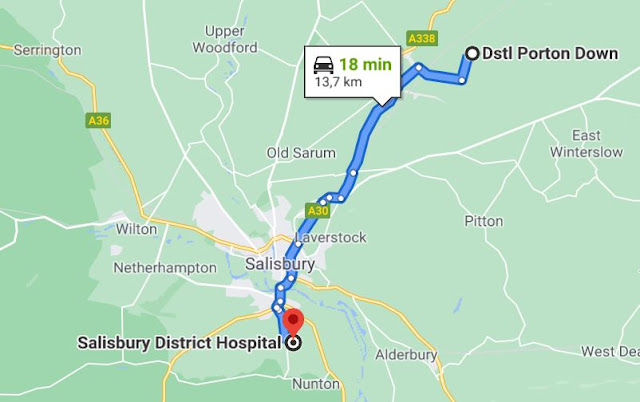..
UK Defense ministry document reveals Skripals blood samples
could have been manipulated
By Dilyana Gaytandzhieva - Dilyana.BG
September 3, 20210
Incredible transformation: Yulia Skripal (left) following the alleged poisoning with the deadliest known nerve agent Novichok. Yulia and her father Sergei Skripal (right) before the alleged nerve agent poisoning.
New evidence has emerged of gross violations during the UK investigation into the alleged poisoning of Sergei and Yulia Skripal in Salisbury on 4th March 2018. The new revelations put into question the main evidence that the Skripals were poisoned with the nerve agent Novichok.
The blood samples taken from the Skripals could have been tampered with so that they test positive for Novichok, newly disclosed information obtained from the UK Ministry of Defense reveals. Furthermore, documents show that Russia was not the only country in the world that could be linked to the nerve agent Novichok.
The US had covered up its own Novichok program masked as research on fourth generation nerve agents (FGAs) and muzzled the Organisation for the prohibition of chemical weapons (OPCW) a decade before the Skripals attack.
Breach of chain of custody
Newly disclosed information obtained from the UK Ministry of Defense (MOD) under the Freedom of Information Act questions the integrity of the main evidence that the Skripals were poisoned with Novichok, namely their blood samples. The ministry is in charge of the British military laboratory DSTL Porton Down which analyzed the Skripals blood samples and reportedly identified Novichok.
“Our searches have failed to locate any information that provides the exact time that the samples were collected”, the ministry states. The information held by MOD therefore indicates that the samples were collected at some point between 16:15 on 4 March 2018 and 18:45 on 5 March 2018 (the approximate time according to MOD when the samples arrived at DSTL Porton Down). Even the time of arrival at Porton Down is indicated as “approximate”.
The lack of this information is gross violation and breach of the chain of custody. The UK NHS protocol requires that a request form accompany all specimens sent to the laboratory and clearly state the exact (not approximate) date and time of collection. This newly disclosed information questions the whole Skripals Novichok poisoning story. The fact that the chain of custody of these blood samples was broken directly suggests that they could have been manipulated and tampered with.
There is so much more on this story, some of it a little technical. There is also some reference to the Navalny poisoning. Read it at DILYANA.BG.




